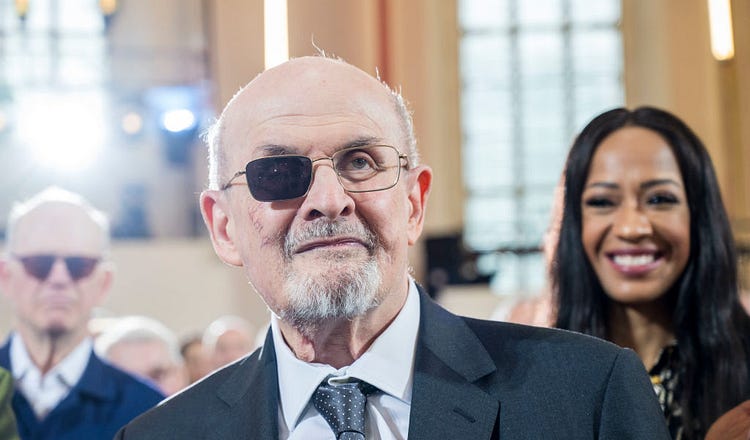Who Saved Salman Rushdie?

Salman Rushdie with his wife Eliza in 2023. (Photo by Thomas Lohnes via Getty Images)
In a new memoir, the author wonders if he was to blame for the attack that almost killed him. And whether a greater force protected his life.
53
In his new memoir, Salman Rushdie describes the moment he glimpsed his would-be murderer closing in on him.
“My eyes follow the running man as he leaps out of the audience and approaches me,” he writes in Knife.
Rushdie, then 75, had just taken the stage at Chautauqua, a resort in upstate New York, when Hadi Matar, a 24-year-old New Jersey man, stabbed …
Continue Reading The Free Press
To support our journalism, and unlock all of our investigative stories and provocative commentary about the world as it actually is, subscribe below.
$8.33/month
Billed as $100 yearly
$10/month
Billed as $10 monthly
Already have an account?
Sign In


